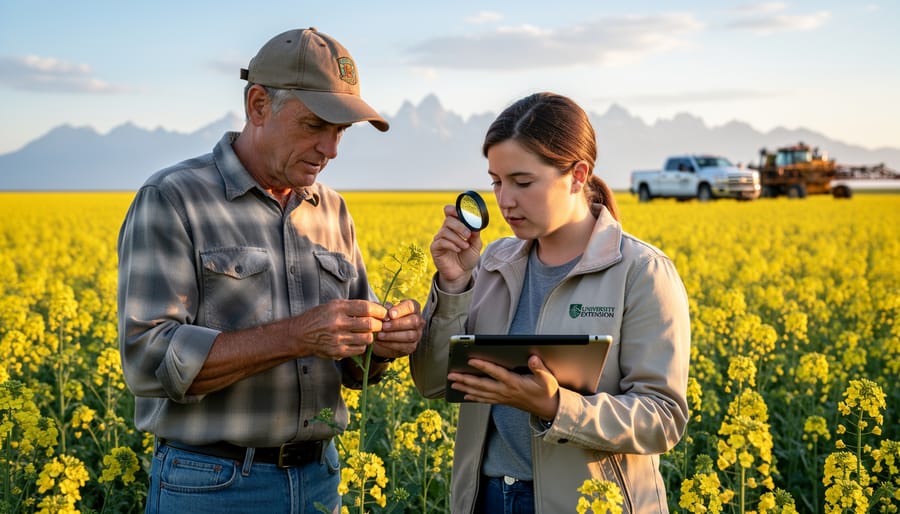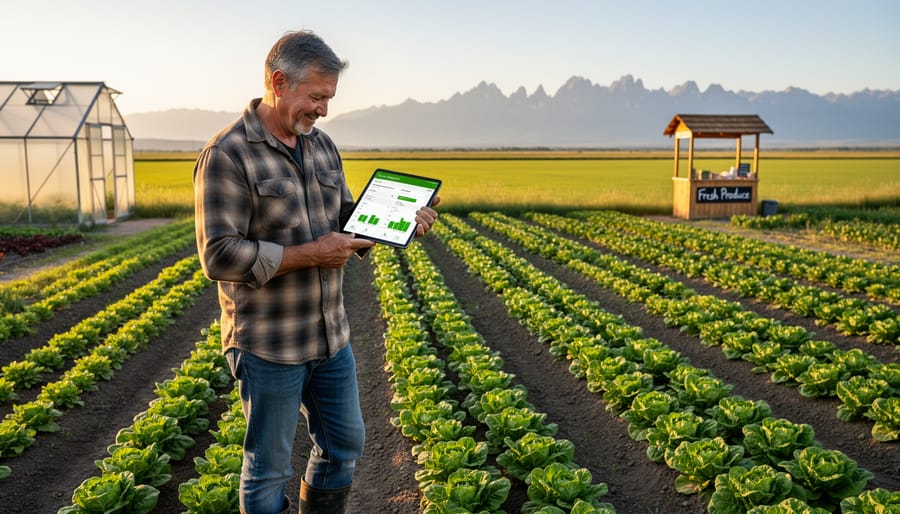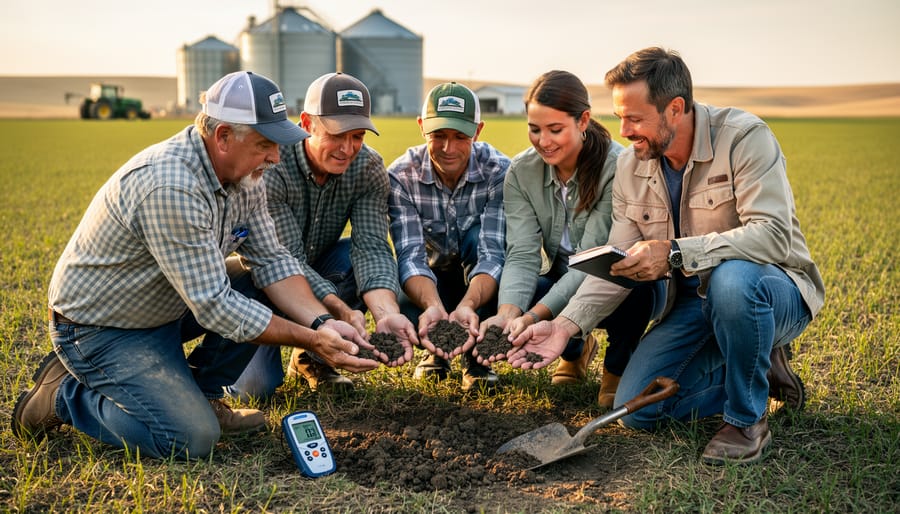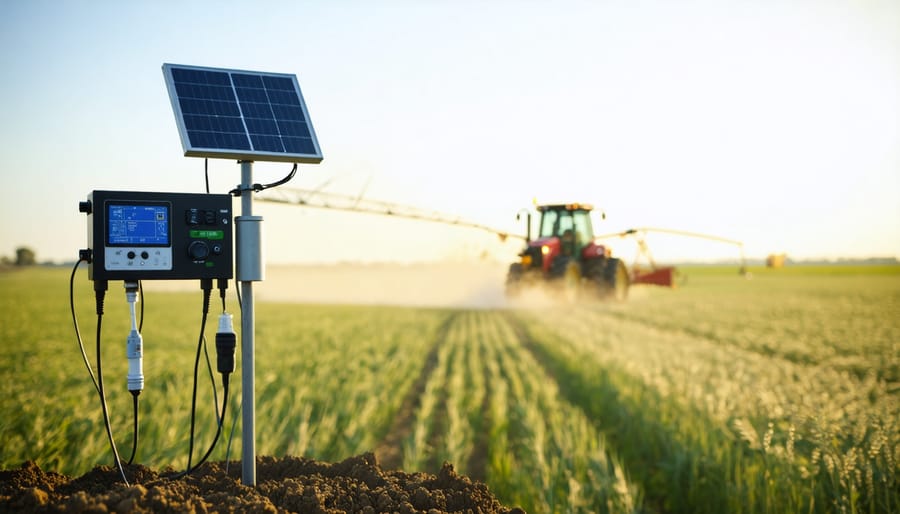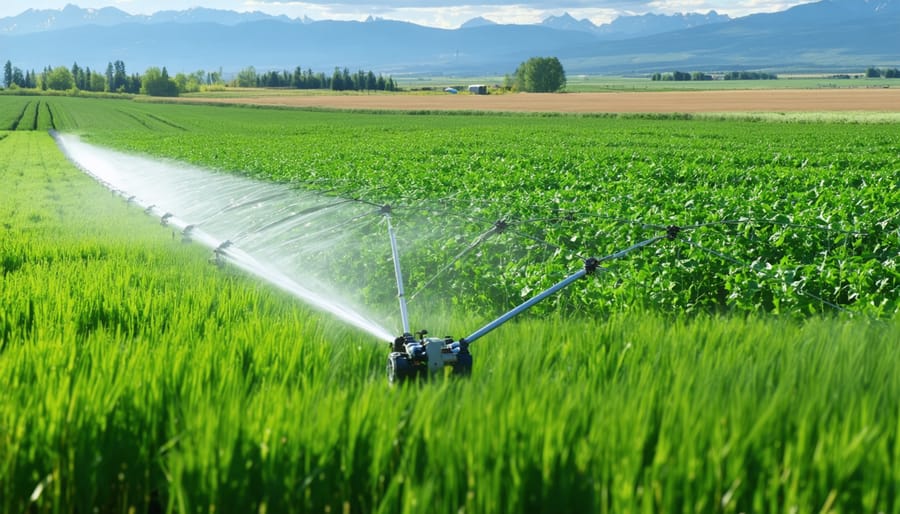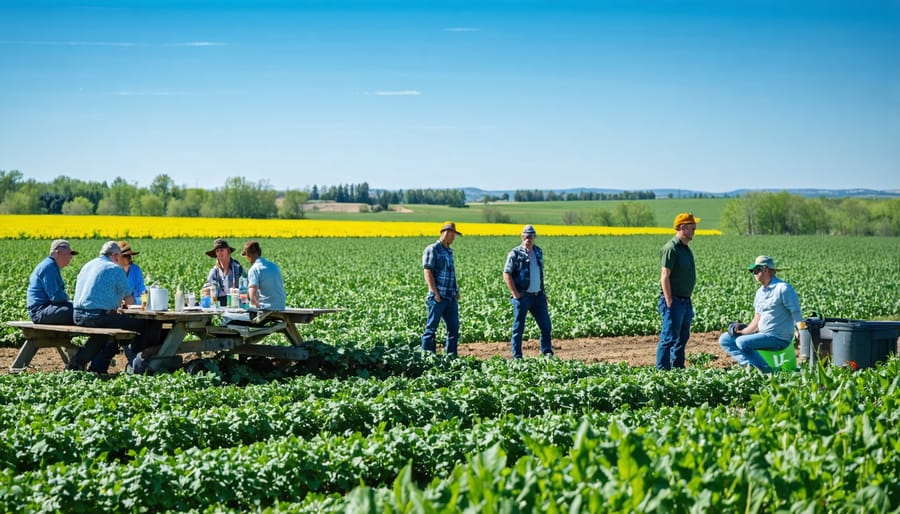Young farmers across Canada are taking bold action on climate change, transforming agricultural challenges into opportunities for innovation and resilience. The Youth Climate Institute, launched in partnership with leading agricultural organizations, equips the next generation of farmers with cutting-edge knowledge and practical skills to tackle climate variability head-on. Through hands-on training programs, peer-to-peer learning networks, and direct mentorship from experienced producers, participants develop climate-smart farming strategies tailored to their local conditions.
This groundbreaking initiative combines traditional farming wisdom with modern climate science, enabling young agriculturalists to implement adaptive management practices while building profitable, sustainable operations. From precision agriculture techniques to soil health optimization, participants learn to balance environmental stewardship with economic viability. The program’s success is evident in the growing network of graduates who are already implementing climate-resilient practices across Alberta’s diverse agricultural landscape, proving that youth leadership in agriculture is not just about preserving farming traditions—it’s about revolutionizing them for a sustainable future.
Empowering Tomorrow’s Agricultural Leaders
Hands-on Learning in Climate-Smart Agriculture
The Youth Climate Institute emphasizes hands-on experience as a cornerstone of developing next-generation farmers who can tackle climate challenges. Participants engage in seasonal field workshops across Alberta’s diverse agricultural zones, from working with drought-resistant crops in Southern Alberta to exploring regenerative grazing practices in the parkland regions.
Students work alongside experienced farmers to implement climate-smart techniques, including soil moisture monitoring, integrated pest management, and precision agriculture technologies. The program features rotating internships on working farms, where participants gain practical experience in sustainable farming methods while contributing to real agricultural operations.
Weekly hands-on sessions focus on essential skills like soil testing, weather pattern analysis, and water conservation techniques. Participants learn to operate climate-monitoring equipment and use data collection tools to make informed farming decisions. The institute also arranges visits to innovative agricultural operations that have successfully implemented climate adaptation strategies, providing tangible examples of sustainable farming in action.
Through these practical experiences, students develop the confidence and capability to implement climate-smart practices in their own farming futures.
Digital Innovation Meets Traditional Farming
At the Youth Climate Institute, we’re bridging the gap between time-honored farming wisdom and modern technology. Through our innovative programs, young farmers are developing essential digital farm skills while maintaining deep connections to traditional agricultural practices. Students work with cutting-edge soil monitoring sensors, drone technology for crop assessment, and precision agriculture tools, all while learning from experienced farmers who share generations of local knowledge.
Our integrated approach combines smartphone apps for weather tracking and yield prediction with hands-on experience in sustainable farming methods. Participants learn to use digital mapping tools to optimize irrigation systems while understanding the importance of crop rotation and natural pest management. This blend of old and new has proven particularly successful in Alberta, where farmers have reported up to 20% increases in yield efficiency while reducing water usage by 15%.
Through mentorship programs, young farmers connect with seasoned agriculturalists who guide them in applying technology meaningfully within existing farming operations, ensuring that innovation enhances rather than replaces traditional farming wisdom.

Building Climate Resilience Through Education
Sustainable Soil Management Training
The Youth Climate Institute’s Sustainable Soil Management Training program empowers young farmers with essential knowledge about soil health and carbon sequestration practices. Through hands-on workshops and field demonstrations, participants learn practical techniques for building organic matter, improving soil structure, and enhancing biological activity in their fields.
The program’s curriculum, developed in collaboration with leading Canadian soil scientists and experienced farmers, covers crucial topics including cover cropping, reduced tillage systems, and organic matter management. Participants engage in soil testing exercises, learning to interpret results and make informed decisions about nutrient management and soil amendments.
A unique aspect of the training is its focus on carbon farming techniques. Students learn how agricultural practices can help sequester carbon dioxide from the atmosphere into the soil, contributing to climate change mitigation while improving soil productivity. The program includes visits to demonstration farms across Alberta where successful carbon sequestration practices are already in place.
Practical sessions include hands-on experience with soil monitoring equipment, composting techniques, and green manure management. Participants also learn about the economic benefits of healthy soil systems, including reduced input costs and improved crop resilience during extreme weather events.
The training emphasizes the connection between soil health and water management, teaching students how improved soil structure can enhance water retention and reduce irrigation needs. This knowledge is particularly valuable for farming in Alberta’s variable climate conditions.

Water Conservation Techniques
At the Youth Climate Institute, students engage with cutting-edge water conservation techniques through hands-on training programs designed specifically for Canadian agricultural conditions. The curriculum focuses on smart irrigation systems that utilize soil moisture sensors and weather data to optimize water usage across various crop types.
Participants learn to implement precision irrigation scheduling, working with experienced mentors from Alberta’s agricultural sector to understand the nuances of water management in both dry and wet seasons. The program emphasizes the integration of traditional knowledge with modern technology, teaching students how to use soil moisture probes and automated irrigation controllers while respecting time-tested farming practices.
A highlight of the water conservation program is the demonstration of drought-resistant crop selection and rotation strategies. Students work in test plots to compare water consumption patterns and yield results across different irrigation methods, from drip systems to pivot irrigation. They also learn about water-saving techniques such as mulching, cover cropping, and reduced tillage practices that help retain soil moisture.
Real-world applications include designing water management plans for local farms, conducting water audits, and developing conservation strategies that consider both environmental and economic factors. The institute partners with regional farmers to provide students with practical experience in implementing these water-saving techniques in actual farming operations.
Success Stories from Alberta’s Fields

Local Farm Transformations
The impact of the Youth Climate Institute’s educational initiatives can be seen across several Alberta farms that have successfully implemented sustainable practices. The Thompson Family Farm in Red Deer County has transformed their 800-hectare operation by introducing cover cropping and rotational grazing techniques learned through the program. Within two years, they reported a 30% reduction in synthetic fertilizer use while maintaining crop yields.
In Lethbridge County, the Martinez-Chen farm partnership demonstrates how young farmers are applying innovative water conservation methods. Their implementation of precision irrigation systems has reduced water consumption by 40% compared to traditional methods, while their soil health monitoring program has shown significant improvements in organic matter content.
The Wheatland Community Farm, managed by recent program graduates, has become a model for regenerative agriculture in central Alberta. Their integration of sheep grazing with vegetable production has eliminated the need for mechanical weed control, reducing fuel costs and emissions. They’ve also established a successful mentorship program, connecting experienced farmers with newcomers to share sustainable farming practices.
These transformations showcase how young farmers are successfully applying climate-smart agricultural practices while maintaining profitable operations, inspiring others in their communities to embrace sustainable farming methods.
Community Impact Initiatives
The Youth Climate Institute’s community impact initiatives have created rippling effects throughout Alberta’s agricultural landscape. Young leaders are spearheading innovative projects that bridge traditional farming wisdom with sustainable practices, strengthening local community food systems while addressing climate challenges.
A standout project is the Farm-to-School Connection Program, where youth participants work alongside experienced farmers to implement climate-smart agricultural techniques. This initiative has helped establish 15 school gardens across rural Alberta, providing fresh produce to local cafeterias while teaching students about sustainable food production.
The Youth Mentorship Network pairs emerging agricultural leaders with established farmers, fostering knowledge exchange and practical skill development. Through this program, participants have initiated over 20 community-based projects, including drought-resistant demonstration plots and innovative irrigation systems that have reduced water usage by 30% on participating farms.
The Institute’s Seed Saving Initiative preserves heritage crop varieties while promoting genetic diversity. Young farmers have collected and catalogued more than 100 locally adapted seed varieties, ensuring these valuable genetic resources remain available for future generations of Canadian farmers. These community-driven projects showcase how youth leadership can catalyze positive change in agricultural communities while building climate resilience.
The Youth Climate Institute stands as a beacon of hope for the future of Canadian agriculture, bridging the gap between traditional farming wisdom and innovative climate-smart practices. Through its comprehensive programs and hands-on training initiatives, the institute continues to empower the next generation of agricultural leaders who will shape our sustainable food systems.
As we face increasing climate challenges across Alberta and beyond, the role of young farmers has never been more crucial. The institute’s success stories demonstrate how youth involvement in agriculture can drive positive change, from implementing water-conservative irrigation methods to developing resilient crop varieties suited to our changing climate.
We invite young Canadians passionate about agriculture to join this growing movement. Whether you’re from a farming background or new to agriculture, the institute offers numerous entry points to get involved. From weekend workshops to full-season training programs, there’s a place for everyone who wants to contribute to building a more sustainable agricultural future.
The time to act is now. By participating in the Youth Climate Institute’s programs, you’re not just learning about sustainable farming – you’re becoming part of a community that’s actively shaping the future of Canadian agriculture. Together, we can build resilient farming systems that will sustain our communities for generations to come.
Connect with us today to learn how you can be part of this transformative journey in Canadian agriculture. Your involvement matters, and your ideas could be the key to innovative solutions we need.


